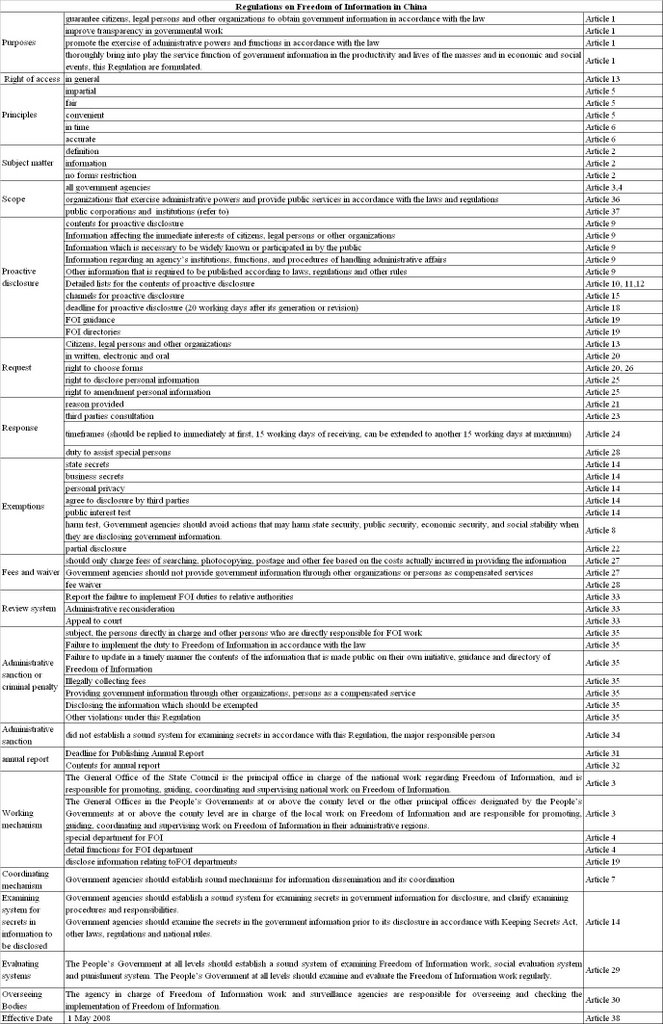Statute to make gov't open, clean
Take from People's Daily Online
A landmark statute to increase government transparency and bolster its fight against abuses of power was unveiled yesterday.
The Regulations on Open Government Information, signed by Premier Wen Jiabao, require officials to swiftly release information involving "the immediate interests of individuals and groups".
The rules, to come into effect next May thus allowing time for departments to prepare also empower citizens to request "special information", which the departments must provide immediately or within 30 days at the most.
"The regulations, which guarantee people's right to know, will facilitate the masses to supervise government departments in correctly exercising their power ... and prevent abuses of power," Zhang Qiong, deputy director of the Legislative Office of the State Council, said.
Priorities areas include details of government spending and procurements, administrative approvals, and collection of public service fees, in addition to investigations into environment, workplace safety and public health.
Governments at county level are required to make public data on land acquisitions, and village authorities will have to reveal information on land use and financial accounting.
Illegal land seizures or expropriation, plus farmers' discontent over village finances and pollution, have long been triggering "mass protests" in some rural areas, experts said.
"The rules are key to building a 'harmonious society' and developing a transparent, clean and efficient administrative system," Zhang told a press conference held by the State Council Information Office.
"They will help to contain and prevent corruption institutionally and at its roots."
Zhang said the open government information system would strike a balance between openness and confidentiality.
The rules stipulate those releasing information steer clear of releasing "State secrets, confidential commercial information and infringing on an individual's privacy".
But administrative staff can put confidential information in the public domain when they believe not doing so would seriously prejudice the public interest.
By making sharing information resources a basic government service, the new statute would facilitate the public to better participate in the government's decision-making process, Yu Guoming, vice-dean of the Journalism School of the Renmin University of China, told China Daily yesterday.
HEADLINE:
However, the regulations should have made more explicit stipulations regarding what constitutes a failure to make public key government information, and what the consequences would be should officials fail to do so, Song Gongde, a researcher with the China National School of Administration, said.
The regulations only say citizens have the right to appeal and authorities will intervene or even penalize those who fail to fulfill their duties of making open government information or do not update their service in time. Source: China Daily

No comments:
Post a Comment